
REVITALIZING THE REPARATIONS MOVEMENT PROGRAM
(CLICK TO VIEW PDF)
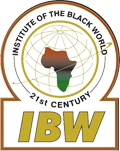
_____________________________________________________________________________________
31-35 95th Street, East Elmhurst, NY 11369 ♦ 718.429.1415 ♦ info@ibw21.org ♦ www.ibw21.org
PRESS RELEASE
Contact: Don Rojas
Tel: 410-844-1031
Email: donjbrojas@gmail.com
Revitalizing the Reparations Movement
A National/International Forum
The Hon. Dr. Ralph Gonsalves, Prime Minister of St. Vincent and the Grenadines and current Chairman of the Caribbean Community of Nations (CARICOM), will present the keynote address at a national/international forum entitled “Revitalizing the Reparations Movement” at Chicago State University on Saturday, April 19, 2014.
Gonsalves is one of the leading voices in the Americas demanding that the former European colonial powers pay reparations to Caribbean and South American countries for centuries of African enslavement, native genocide and colonial exploitation.
The forum is organized by the Institute of the Black World 21st Century (IBW) in conjunction with the Center for Inner City Studies and the Samuel DeWitt Proctor Conference.
Specially invited guests will be Detroit’s Hon. John Conyers, Sr., dean of the Congressional Black Caucus, and sponsor of HR-40, the Reparations Study Bill and Minister Louis Farrakhan, leader of the Nation of Islam.
A primary goal of the forum is to revitalize the reparations movement in the USA by revisiting the Durban Resolution on the Trans-Atlantic Slave Trade, presenting an update on HR-40 and examining the status of CARICOM’s reparations initiative.
The forum will be hosted by Dr. Wayne Watson, President and Dr. Angela Henderson, Provost of the Chicago State University and moderated by Hon. Judge Lionel Baptiste.
Other speakers will include Dr. Conrad Worrill, Director/Professor, Center for Inner City Studies; Dr. Iva Carruthers, General Secretary, Samuel DeWitt Proctor Conference; Dr. Ron Daniels, President of the Institute of the Black World; JoAnn Watson, former Detroit City Council Member; Don Rojas, Director of Communications, Institute of the Black World and Illinois State Rep. Donne Trotter.
“We are delighted and honored to have Prime Minister Gonsalves keynote this critical forum on reparations, a subject of fundamental historical justice that is near and dear to the hearts of Black people around the world,” said IBW’s Dr. Daniels.
“Our ancestors will be pleased that the reparations movement is being re-energized from the Caribbean islands,” said Dr. Conrad Worrill, Director of Chicago’s Inner City Studies. “In demanding reparations, CARICOM is vindicating the vestiges of the Trans-Atlantic Slave Trade.”
CARICOM leaders meeting in St. Vincent on March 10 & 11 took one more important step in their quest for reparatory justice against European countries that had engaged in the Trans-Atlantic Slave Trade and in slavery itself. They unanimously adopted a 10-point plan that would seek a formal apology for slavery, debt cancellation from former colonizers such as Britain, France, Spain and the Netherlands and reparation payments to repair the persisting “psychological trauma” from the days of plantation slavery.
The plan also calls for assistance to boost the region’s technological capacity and strengthen its public health, education and cultural institutions such as museums and research centers. If the European powers fail to publicly apologize and refuse to come to the negotiating table, the CARICOM nations said they will file a law suit against the European powers at the International Court of Justice in the Hague.
Last July, at the CARICOM heads of government summit in Trinidad & Tobago the leaders mandated the establishment of a Regional Reparations Commission charged with seeking restitution for citizens of their respective countries. Since then, national reparations commissions have been established in all 14 countries that make up CARICOM.
“We welcome this further step in reconnecting our shared histories and legacies,” said Dr. Iva Carruthers, General Secretary, Samuel DeWitt Proctor Conference. “The moral agency of the Black church must never abandon its claim on an apology and reparations for the protracted crimes against African humanity, during and as a result of the Trans Atlantic Slave Trade”.
Research ♦ Policy ♦ Advocacy
ARTICLE: CARICOM Reparations ten-point plan
We must not apologize for reparations demands
COIP backs reparations initiative
Callie House and the Struggle for Reparations
Slavery, Mass Incarceration and Capitalism
Africa’s Slave Trade to Colonialism to Liberation / The history behind Africa’s slave trade, how it started, and where in Africa it began first. African chiefs used to sell their own people in exchange for valued goods, or treasured assets. Then, when the Europeans arrived they began trading with them. The Europeans offered what they had in exchange for slaves and the slave trade became a widely known, and relevant phenomenon in most parts of the world. America and Europe needed people who could do hard labor, who could do their work for them which were rigorous tasks. Slave traders came along the African coast, which was the Sub-region (South of the Sahara) to acquire slaves. They would get them in large numbers and pack them inside the ships they came with. Then, in the 1800s the slave trade was abolished by Abraham Lincoln and then European colonialism/imperialism became the new system in which mainly the Europeans created to strengthen their nations. The necessity of raw materials, namely natural resources, led to European colonization. Also, to establish colonies which were brought up in the ways of the colonial powers, particularly Britain, France, Belgium, Portugal, Germany, among others in order to extend their influence both culturally, politically, socially, and religiously. The geographic borders one sees on the map today of Africa, were designed by the European colonial powers who wanted to divide the continent into sections whereby it would be clear who’s colony was where, and that each colony would stay within boundaries. This was carried out in 1884 in Berlin, Germany. Africa’s resources were being exported immensely to the nations which ruled over certain colonies there, thus being distributed out to the rest of the world. After World War 2 and the establishment of the United Nations, nationalists movements began which internal self government came into focus and practice, thus leading to independence, sovereignty, and the emancipation /liberation of the African continent. Pan Africanists/nationalists/freedom fighters like Dr. Kwame Nkrumah, Patrice Lumumba, Sekou Toure, among others came into being and agitated for independence.

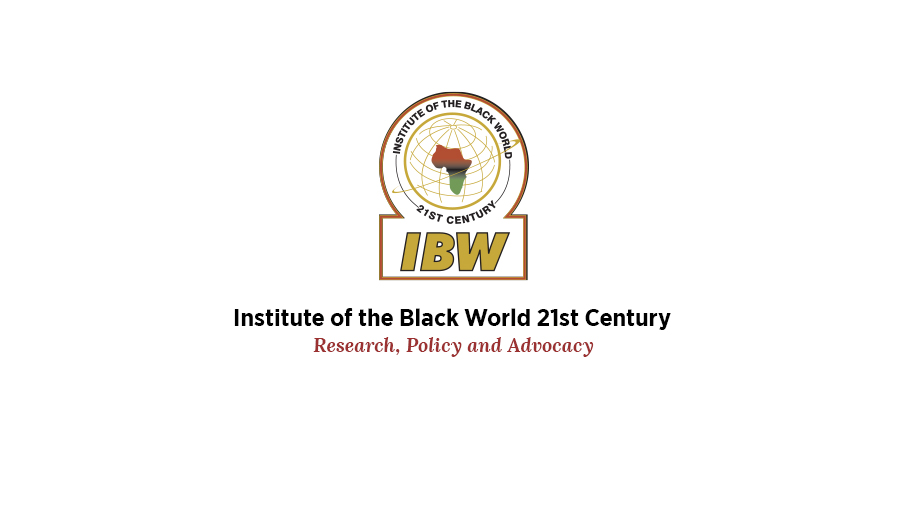








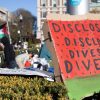


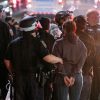
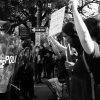

March 18, 1994 the 20th Anniversary of The First Reparations Petition for United
Nations Assistance under Resolution 1503 (XLVII) on behalf of African-Americans
in the United States of America” was submitted by the Honorable Silis Muhammad,
Chief Executive Officer of the Lost Found Nation of Islam and All for Reparations
and Emancipation.
Mr. Muhammad has been working diligently for the past 40 years to bring the issue
of Reparations to the forefront. He has successfully brought International
attention to this issue 20 years ago by drafting and submitting, as stated
above The First Reparations Petition for United Nations Assistance under Resolution 1503 (XLVII). . . You can follow the history of this international movement at http://www.AllForReparations.org. At the All for Reparations and Emancipation
(AFRE) website you will find A Regional Perspective on Afrodescendant Quality of Life UN Sub-Commission Conference Room Paper Document #A/HRC/Sub.1/58/AC.5/CRP.1 and other relevant information as well as United Nation Oral and Written Statements on behalf of Afrodescendants.
Please note the term “Afrodescendants” refers to peoples who:
1. Were forcibly dispossessed of
their homeland, Africa;
2. Were transported to the
Americas and Slavery Diaspora for the purposes of enslavement;
3. Were subjected to slavery;
4. Were subjected to forced mixed
breeding and rape;
5. Have experienced, through
force, the loss of mother tongue, culture and religion;
6. Have experienced racial
discrimination due to lost ties from their original identity and are
7. Going through a rebirth of
Ethno-Genesis.
I seems unlikely now, that a SERIOUS meeting, speech, construct, or conference be held on Reparations and an invitation is not extended to Mr. Silis Muhammad, who have labored for over 35 years on the front line of this battle. Not to invite Him or one of His able Representative is a blow of discrimination of Our own kind, which We should know better. This is what Our open oppressor have done. WE must willing to hear every voice that speaks to the hurt of Afrodescendant People, everywhere. Mr. Muhammad shared the United Nations stage with members of NCOBRA, as I’m sure both Brothers Ron Daniels and Conrad Worrill are aware. I know because I have personally placed documents and publications in their hands. So I am hoping soon to hear that an invitation has been extended to Mr. Muhammad to PRESENT before Your conference so that He can share valuable and beneficial information to all. Thank You for reading these words. Peace!!